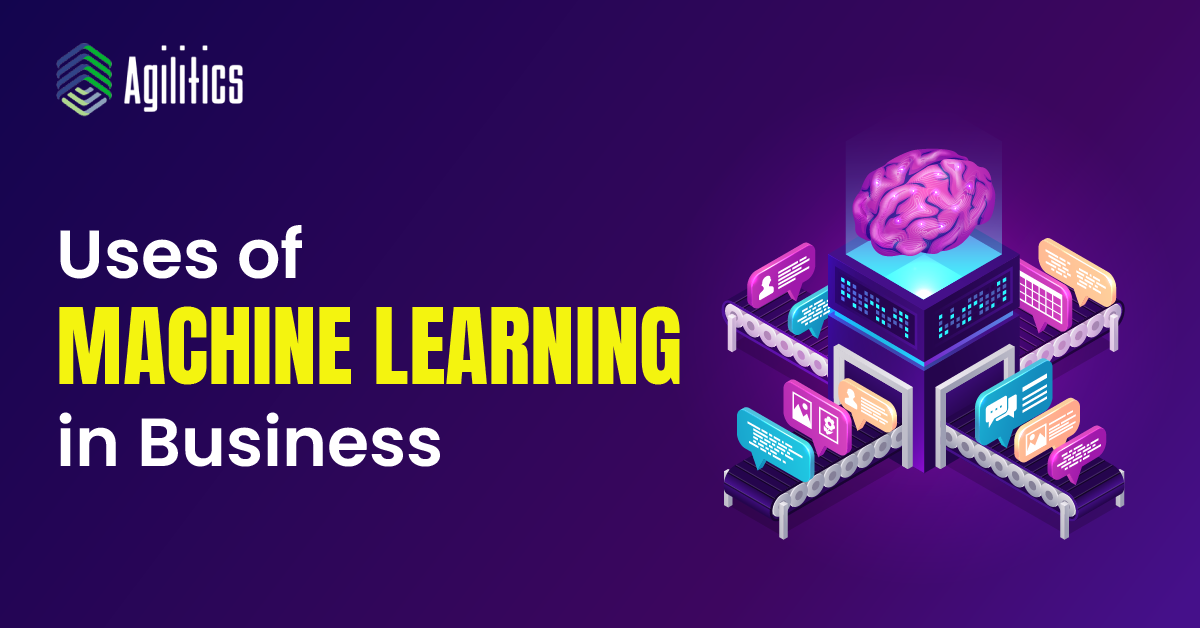Machine learning has become such an integral part of the modern business landscape that it’s hard to imagine how companies functioned without it in the past. However, technology has become so common that most people don’t even consider just how revolutionary it really is.
This article will take you through some of the best use cases of machine learning in business and show you just what these algorithms are capable of doing on a day-to-day basis when wielded by smart, savvy data scientists.
The Benefits of Using Machine Learning in Business
In recent years, machine learning has become one of the most popular buzzwords in the business world. And for good reason – machine learning can provide a huge boost to businesses of all sizes.
Machine learning is a form of artificial intelligence that allows computers to learn from data, without being explicitly programmed. This means that businesses can use machine learning to automate tasks that would traditionally be done by human employees, such as customer service, data entry, and even marketing.
Machine learning can also be used to improve the accuracy of predictions made by business intelligence software. This can help businesses make better decisions about everything from pricing to inventory levels.
Overall, machine learning can provide a significant competitive advantage for businesses that know how to use it. Those who are able to harness the power of machine learning will be well-positioned to succeed in the years to come.
Applications of Machine Learning in Business
Businesses across a variety of industries are turning to machine learning to help them make better decisions, automate processes, and improve customer experiences.
Here are just a few examples of how machine learning is being used in business today:
1. Supply Chain Management
In any business, stock levels are an important consideration. If you have too much stock, you might lose money; if you have not enough stock, you might lose customers. There are many ways to try and predict demand, but a machine learning system is one of the most efficient.
A machine learning system will be able to learn from previous demand patterns, using those patterns to predict future demand. Machine learning can be used to optimize stock levels and predict demand, helping businesses to avoid stockouts and to reduce waste. This will be a huge help when it comes to trying to ensure the right amount of product is always in stock.
2. Automating Tasks
Machine learning can be used to automate tasks in business. For example, it can be used to automatically generate reports, manage customer databases, or predict customer behavior.
It can also be used to automate tasks that are currently performed manually, such as data entry or analysis. This can save businesses time and money, and improve the accuracy of the tasks that are performed.
3. Improving the Accuracy of the Predictive Analytics Model
Machine learning is a powerful tool that can be used to improve the accuracy of predictive analytics models. There are a number of different machine learning algorithms that can be used for this purpose, and the choice of algorithm will depend on the specific data set and predictive modeling problem.
By using machine learning to improve the accuracy of predictive analytics models, businesses can make more informed decisions about future events and take advantage of opportunities that they might otherwise miss.
4. Identifying Trends and Patterns in Data
As businesses increasingly rely on data to drive decision-making, machine learning is becoming an invaluable tool for extracting insights from large data sets.
By identifying trends and patterns in data, machine learning can help businesses to better understand their customers, optimize operations, and make predictions about future trends.
5. Recommending Products or Services to Customers
These days, businesses are using machine learning in a variety of ways to improve their operations and better serve their customers. One common use case is using machine learning to recommend products or services to customers.
This can be done in several ways, such as studying customer behavior and purchase history to identify patterns and trends. Based on this data, businesses can make recommendations to individual customers about what they might want to buy. This is convenient for customers and can help businesses boost sales.
6. Personalizing a Business’s Marketing and Sales Efforts
It’s important that companies are able to predict how their customers will respond to particular offers. For example, some companies like travel businesses may want to predict which customers are likely to book a flight to Paris.
Using machine learning to monitor customer behavior, the company can make accurate predictions. It can be used to predict which customers are most likely to respond to a particular offer, helping businesses to focus their efforts more effectively. This will allow the business to focus its efforts on the customers who are most likely to respond to a particular offer.
7. Automating Customer Support Tasks
In today’s business world, customer service is the key to success. That’s why many businesses are turning to machine learning to help them provide better service to their customers.
Machine learning can be used to help businesses automate customer service tasks, such as responding to customer queries and requests. It can also be used to automatically identify and route customer queries to the most appropriate customer service agent. Businesses can understand their customers better, by analyzing customer data and feedback.
8. Improving the Usability of Business Websites and Apps
Machine learning can be used to help improve the usability of business websites and apps in many ways. For example, it can be used to help identify user needs and preferences, so that businesses can make changes to their websites and apps accordingly.
Additionally, machine learning can be used to help track user engagement and identify areas where users are struggling. By understanding how users interact with their websites and apps, businesses can make necessary changes to improve the overall experience.
9. Detecting Fraud and Anomalies
Another common use case for machine learning is detecting fraud. This is usually done by training a machine learning model on historical data that includes known fraud cases. The model can then be used to flag new cases that are similar to the ones it has been trained on.
By analyzing past data, machine learning can help businesses to identify patterns of fraud and to develop more effective fraud prevention strategies.
10. Helping Businesses Make Better Decisions
Additionally, machine learning can be used to improve the accuracy of decision-making processes in business. For example, it can be used to identify patterns in data that can help a company make better decisions about pricing, product development, or marketing.
Businesses have started to adopt machine learning in a big way. Machine learning is a subset of artificial intelligence that allows computers to learn from data without being explicitly programmed. This can be achieved by using algorithms that can automatically improve given more data.
If you are looking to kickstart or transform your career into Machine Learning, our IBF funded courses can help you start your journey.
Our Upcoming Training
Agilitics provides IBF accredited training programs to working professionals with the motto to improve the skills and competencies needed to enhance their work performance.
All the courses are benchmarked against industry standards and one can avail a subsidy of upto 90% for the courses. Take a look at our IBF funded training programs and see if you qualify for the IBF funding scheme.
| Name | Trainer | Schedule |
|---|---|---|
| MariaDB Training | Ajit Kumar | View Schedule |
| Certified Agile Coaching | Jerry Rajamoney | View Schedule |
| Cloud Security Knowledge | Sarbojit Bose | View Schedule |
Summary
Machine learning is a powerful tool that can be used to improve businesses in several ways. By automating tasks, reducing costs, and improving efficiency, machine learning can help businesses to stay competitive and improve their bottom line.
In addition, machine learning can be used to improve customer service, by providing insights that can help to resolve issues more quickly and efficiently. Machine learning is therefore a valuable tool for businesses of all sizes, and one that can help to improve their bottom line.
We strive to provide business professionals with the skills and knowledge necessary to increase work performance and drive greater return on investment for the global customers we support. Agilitics delivers customized technology and management training solutions to large corporations and government agencies around the world.


